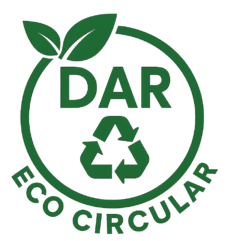Title:
Dar Eco Circular’s Bold Plan to Empower Waste Pickers: Building on the Proven SWaCH Model
Introduction
Dar es Salaam’s waste management challenges are urgent—but so are the opportunities. Waste pickers are the backbone of the city’s recycling system, recovering thousands of tonnes of material that would otherwise be lost to landfills. Yet their livelihoods remain vulnerable to policy changes and privatization. Dar Eco Circular is determined to change that—by integrating waste pickers into its Integrated Waste Project in a way that secures their income, formalizes their work, and strengthens the city’s circular economy.
The Commitment: Integration Without Disruption
Dar Eco Circular’s approach ensures waste pickers are not displaced, but empowered. The goal is to build on existing networks—such as MTAWADA and local CBOs—and bring waste pickers into a structured, cooperative-based system that boosts their working conditions and income stability.
Core Elements of the Integration Plan
1. Cooperative Ownership
Waste pickers will be registered as members of a cooperative, granting them legal recognition, decision-making power, and a share of profits. Built on the foundation of existing networks like MTAWADA, this model ensures continuity, ownership, and community trust.
2. Selected Area Door-to-Door Service
Dar Eco Circular will target high-potential neighborhoods where waste pickers will collect directly from households, markets, and institutions. They will earn modest user fees from residents plus guaranteed payments from Dar Eco Circular—providing stable, dual income streams.
3. Social Benefits and Protections
Members will receive PPE, health insurance, ID cards, and continuous training in waste sorting, recycling, and value addition. These measures will boost safety, professionalism, and long-term career prospects.
Current Landscape: Waste Pickers in Dar es Salaam & Pugu (Data Snapshot)
To ensure integration without disrupting livelihoods, Dar Eco Circular is grounding its plan in the best available data:
-
City-wide workforce: Estimates range from 1,200+ mapped waste pickers operating across 15 informal recycling transfer stations and the Pugu Kinyamwezi dumpsite, to as many as ~15,000 informal waste pickers when including street collectors, market pickers, and unregistered workers across the metro.
-
At Pugu (Kinyamwezi) dumpsite: Field observations indicate ~200–300 waste pickers enter the site daily to recover recyclables and trade materials.
-
System pressure: Dar es Salaam generates 4,600–5,300 tonnes of solid waste per day, with only a fraction reaching formal disposal—underscoring the critical role of waste pickers in collection and diversion.
What this means for integration: Dar Eco Circular will design phased onboarding around these volumes—starting with the 200–300 daily Pugu pickers and priority transfer stations, then extending to ward-level street and market pickers—so no one loses access to income while service quality improves.
How Dar Eco Circular Will Use This Data
-
Registration & ID drive: Prioritize Pugu-based pickers and those linked to the 15 transfer stations, building to a city-wide register in partnership with MTAWADA and ward leadership.
-
Guaranteed earning floors: Pair user fees with top-up payments from Dar Eco Circular during transition periods to stabilize daily earnings.
-
Shift design by flow: Schedule collection and sorting shifts to match peak arrivals at Pugu and high-yield neighborhoods/markets.
-
Benefit deployment: Distribute PPE, health cover, and training first to the highest-exposure cohorts, then scale city-wide.
Benchmark Model: The SWaCH Experience in Pune, India
SWaCH (Solid Waste Collection and Handling) is India’s first wholly waste-picker-owned cooperative. Founded in 2007 by the Kagad Kach Patra Kashtakari Panchayat (KKPKP) and the Pune Municipal Corporation (PMC), it integrates waste pickers into formal municipal waste services.
Key Achievements of SWaCH:
-
2,100 members serving 350,000+ households, shops, and offices.
-
Direct collection of user fees from clients.
-
Major landfill waste reduction through source segregation and recycling.
-
Full legal recognition and improved working conditions.
SWaCH succeeded where many cities failed because it prioritized inclusion over privatization, ensuring waste pickers retained access to waste and steady income.
Why This Model Fits Dar es Salaam
Around the world, privatized waste systems often exclude informal workers, causing income loss and social harm. The SWaCH model demonstrates that formal integration can:
-
Cut landfill dependency by over 50%.
-
Increase recycling rates dramatically.
-
Strengthen community participation in waste management.
-
Raise waste picker incomes and dignity.
By adapting SWaCH’s cooperative principles and combining them with local innovations like BSF composting and digital pickup scheduling, Dar Eco Circular can deliver green jobs, environmental protection, and social inclusion—all at once.
Conclusion
Dar Eco Circular’s vision is bold and achievable: a waste management system that is both environmentally sustainable and socially inclusive. By placing waste pickers at the heart of Dar es Salaam’s circular economy and ensuring they benefit from its growth, the city can transform a vulnerable workforce into empowered environmental stewards—pioneering a model for all of East Africa.




Leave a Reply to A WordPress Commenter Cancel reply